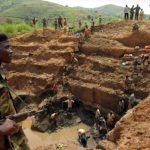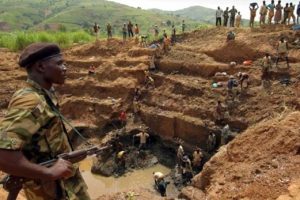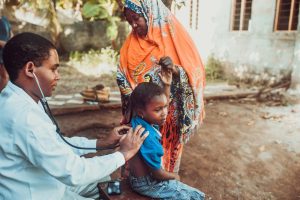315,000 grave violations against children were recorded in more than 30 conflict situations across Asia, the Middle East, Latin America and Africa between 2005 and 2022.
The UN Children’s Fund Executive Director, Catherine Russell, warned that “any war was ultimately a war on children”, as the Oslo Conference on Protecting Children in Armed Conflict was due to end on Tuesday (June 05).

“That night we were sitting at home when the bandits came. People screamed and hid in their houses and locked their doors,” 11-year-old Aya vividly remembers. “When the attack was over, my mother and father said we needed to flee because it was too dangerous, and that’s how we came to be in Sevare.”
The incidents verified by the UN included more than 120,000 children killed or maimed; at least 105,000 children recruited or used by armed forces or armed groups; more than 32,500 children abducted. and over 16,000 suffered sexual violence.Facilities such as schools and hospitals were also targeted.
As these are just the cases that have been verified, the true toll is likely to be far higher.
Additionally, many millions more children have been displaced from their homes and communities, lost friends or family or been separated from parents or caregivers.
“When we were taken, they told us not to escape. If we did, they would find us again and kill us. So, I stayed,” a child whose identity was protected for safety reasons said. “Life was very, very bad because of the thing I saw. They were killing people, slaughtering people, life was not good,” the boy added.
New analysis by NGO Humanitarian Funding Forecast, reveals that the needs will not be matched by the scale of funding available.
The analysis was commissioned by UNICEF, Save the Children, the Alliance for Child Protection in Humanitarian Action and the Global Child Protection Area of Responsibility. It shows that by 2024, the child protection sector will require USD 1.05 billion, increasing to USD 1.37 billion by 2026, to address the protection needs of children in armed conflict.
Needs outnumber available resources
This includes services like family reunification, mental health support, the prevention of recruitment into armed groups. However, the study also indicates an impending funding shortfall.
If the current pace of humanitarian funding continues, the projected shortfall would stand at USD 835 million in 2024, growing to USD 941 million by 2026. This gap could leave conflict-affected children exposed to the immediate and lasting impacts of war, child labor, trafficking, and violence.
As leaders convene in Oslo, UNICEF is calling for governments to make new commitments to uphold and operationalize the international laws and norms already in place to protect children in war – including to protect schools, hospitals and other protected objects like water and sanitation facilities from attack, to stop the recruitment and use of children by armed groups and forces, to stop the use of explosive weapons in populated areas.
The body is also calling to hold perpetrators to account when children’s rights are violated and to step up with resources to fund the protection of children in conflict at the scale and speed required, in line with growing need. This must include investment in humanitarian response and in national child protection workforces, it said. In addition to that, the body urged humanitarian actors to invest in policies that place children and their protection at the centre of humanitarian action in situations of armed conflict.
“We need to do everything we can to reach all children in need, particularly the most vulnerable. Protection services for children must build upon existing systems and community structures, and support children’s rights, participation, and their best interests. Programmes and advocacy in these contexts must unfailingly put children and their protection at the centre of humanitarian action,” Catherine Russell said.
Source:AFRICAN NEWS




















Add Comment